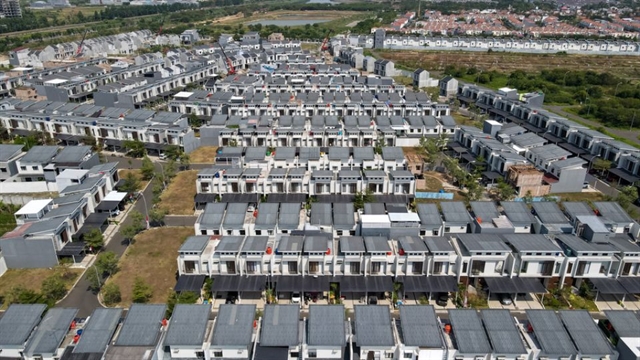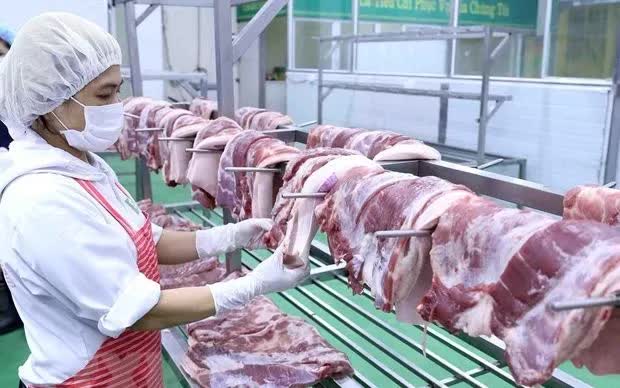 World
World


|
| The aerial picture taken on August 4, 2021 shows a housing complex for residents in Jakarta, near the border with a neighbouring province. — AFP/VNA Photo |
JAKARTA — Property developers have proposed a rent-to-own scheme as a way to ease homeownership access for workers in the informal sector.
Junaidi Abdillah, chairman of the All-Indonesia Association of Housing and Settlement Developers (Apersi), said the scheme could address the persistent issue of informal workers who were often underserved by banks. Thus, they stood little chance to access mortgages, due to fluctuation in their income.
“It’s complicated for banks to assess non-fixed income earners, like bakso [meatball] sellers, vegetable sellers or street hawkers,” Junaidi told a meeting with the House of Representatives Commission V, which oversees infrastructure, transportation and the development of disadvantaged regions.
“It’s very difficult for them to access financing. Only a small percentage manage to get it, mostly through BTN,” he added, referring to state-owned mortgage lender Bank Tabungan Negara.
Junaidi suggested the provision of a rent-to-own scheme as an option for informal workers who might not fit the conventional creditworthiness criteria, especially the Financial Information Service System (SLIK) of the Financial Services Authority (OJK) that banks commonly used.
“If [rent payments] go well for several years, you can own the house. So we don’t assess [eligibility based on salary], making this rent-to-own scheme compatible for people who are underserved by banks,” he said.
At the same meeting, chairman Muhamad Syawali of the National Housing Developers and Marketers Association (Asprumnas) said banks’ credit scoring system had hampered access to home financing, even for formal workers who earned a fixed monthly income.
According to Syawali, many formal workers, especially those who earned less than Rp 6 million (US$365) per month, were unable to obtain financing for subsidised housing.
For example, he continued, the minimum wage in East Java was Rp 2.4 million per month but under the standard bank scoring model, only 30 percent of this amount could be put toward mortgage payments. This meant that people who earned around Rp 2 million would only qualify for a monthly mortgage of between Rp 800,000 and Rp 900,000.
“However, even the minimum [mortgage payment] for subsidized housing is Rp 1.05 million. [The numbers] don’t add up,” said Syawali.
He also pointed to problems in several regions where regulations, such as exemptions from the land and property transfer duty (BPHTB) for low-income homebuyers, were not enforced.
Last November, Home Minister Tito Karnavian, Public Housing and Settlements Minister Maruarar “Ara” Sirait and Public Works Minister Dody Hanggodo signed a joint ministerial decree aimed at helping low-income individuals own homes and included waivers for the BPHTB and the building approval (PBG) fee, both of which are normally paid to regional administrations when purchasing a house.
In April this year, the government issued another regulation, which increased the previous maximum income cap of Rp 8 million per month regardless of marital status, in a bid to boost homeownership by expanding the subsidized housing program to people in higher income brackets, including the middle class.
Unmarried individuals in Greater Jakarta who earn up to Rp 12 million per month, as well as married individuals with a monthly income of up to Rp 14 million, are now eligible for government housing programmes. — THE JAKARTA POST/ANN




